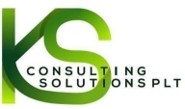
Transform Your Management Processes into a Competitive Advantage
A robust ISO Management System ensures compliance, consistency, and efficiency. At KS Consulting Solutions, we help you design, implement, and maintain practical ISO management systems tailored to your business — turning quality and compliance into a driver of success.
Our ISO Management System Services
1. Gap Assessment & Custom System Design
Identify compliance gaps and operational inefficiencies.
Design a system framework that fits your business workflow.
2. Documentation & SOP Development
Develop or revise manuals, SOPs, forms, and checklists.
All documents are audit-ready, clear, and practical for staff.
3. Implementation Support & Change Management
Guide you through rollout, role assignment, and staff training.
Ensure smooth adoption and long-term sustainability.
4. Internal Audits & Continuous Improvement
Conduct internal audits and management reviews.
Track performance, implement corrective actions, and improve processes.
5. Training & Capacity Building
Staff training on system operation, document control, and audit readiness.
Empower your team to maintain and improve the system independently.
Standards We Support
We provide ISO management system consulting across multiple standards, tailored to your industry:
ISO 9001 – Quality Management
ISO 14001 – Environmental Management
ISO 45001 – Occupational Health & Safety
ISO 22000 / HACCP – Food Safety Management
ISO 13485 – Medical Device Management
IATF 16949 – Automotive Management
AS 9100 – Aerospace Management
ISO 37001 – Anti-Bribery Management
ISO 27001 – Information Security / ISMS
ISO 17025 – Laboratory Management (Testing & Calibration)
ISO 15189 – Competence & Quality of Medical Labs
ISO 22301 – Business Continuity Management
We customize each system to your industries business needs.
How We Work – 5 Simple Steps
Consultation & Gap Assessment – Understand current practices & compliance gaps.
Design & Documentation – Draft policies, SOPs, and forms aligned with your needs.
Implementation & Training – Staff onboarding, process rollout, and change management.
Internal Audit & Review – Conduct audits, implement corrective actions, and refine processes.
Ongoing Support – Monitor, improve, and maintain your ISO management system for lasting results.
Ready to Improve Your Management System?
Let’s make compliance and quality a strength, not a burden.
Get a Free ISO Management System Assessment & Quote: https://ksconsultingsol.biz/apps/contact-form-plus
Frequently Asked Questions (FAQs):
Q1: Do you work with small or medium-sized businesses?
A: Yes. We tailor ISO management systems to companies of all sizes — from small enterprises to large organizations. Our solutions are scalable to meet your business needs.
Q2: How long does implementation take?
A: The timeline depends on your company’s size, complexity, and current processes. Typically:
Small to medium companies: 3–6 months
Larger or multi-site companies: 6–12 months
We provide a tailored estimate after an initial consultation.
Q3: How much does it cost?
A: Costs vary depending on your business size, number of standards, and level of support required. During a consultation, we provide a clear proposal and estimate based on your needs.
Q4: Can my team maintain the system independently after implementation?
A: Absolutely. We provide training, documentation, and guidance to ensure your staff can manage and improve the system long-term.
Q5: Can you integrate multiple ISO standards in one system?
A: Yes. We design integrated ISO management systems that combine multiple standards efficiently to suit your operations, saving time and reducing duplication.
Q6: Do you assist with external audits and certification?
A: Yes. We prepare your organization for external audits, help liaise with certification bodies, and ensure your system meets audit requirements.
Q7: Do you provide staff training?
A: Yes. Training is a core part of our service — covering system operation, document control, audit readiness, and continuous improvement.
Q8: What industries do you support?
A: We have experience in all industries. Our systems are adapted to your industry standards and operational requirements.
Q9: What are the benefits of implementing an ISO management system?
A: An ISO management system helps your business:
Improve operational efficiency and consistency
Reduce risks and non-compliance issues
Enhance customer trust and market competitiveness
Provide clear processes and traceability
Build a culture of continuous improvement
